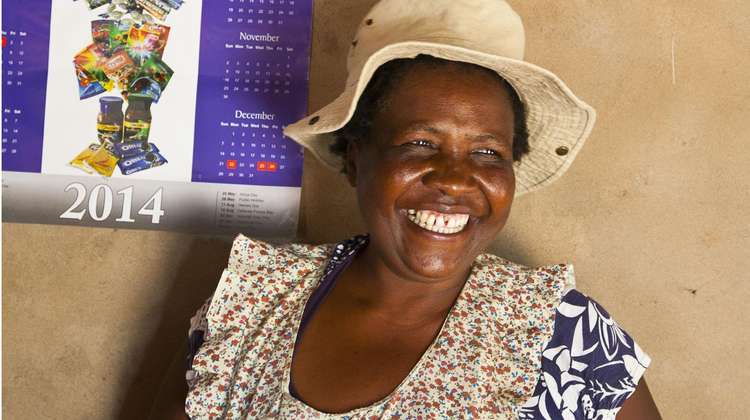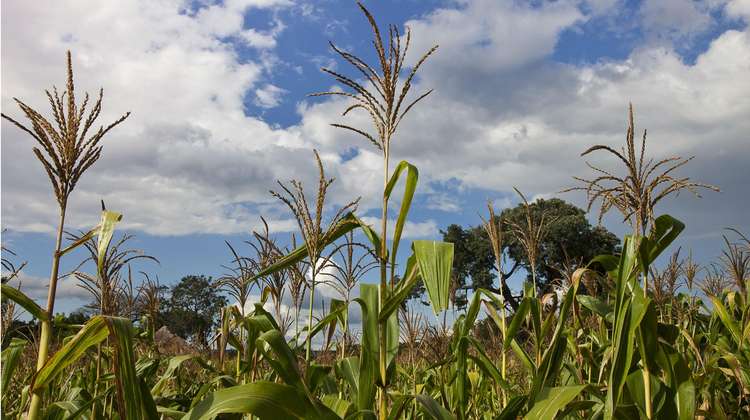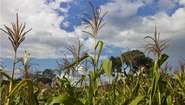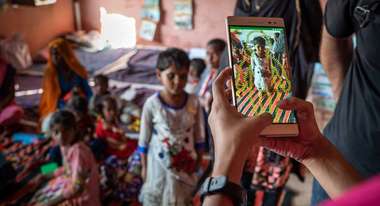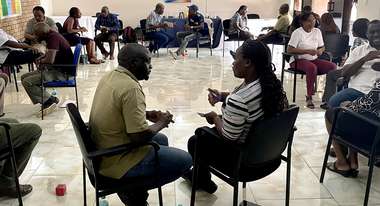New Beginnings with Sustainable Agriculture
Sustainable Agriculture Secures Food and Income for Smallholders in Zimbabwe
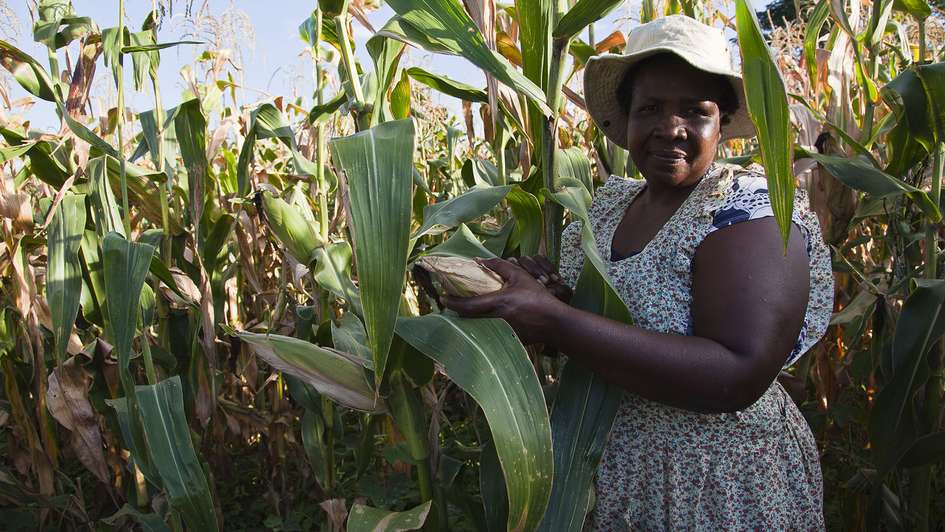
For a long time, Zimbabwe was the breadbasket of Africa. However, the landlocked country, which once boasted a booming agricultural industry and a wealth of natural resources, has been mired in an economic crisis for years. It can no longer provide staple foods for its residents, with more than a quarter of all children under five years of age suffering from chronic malnutrition.
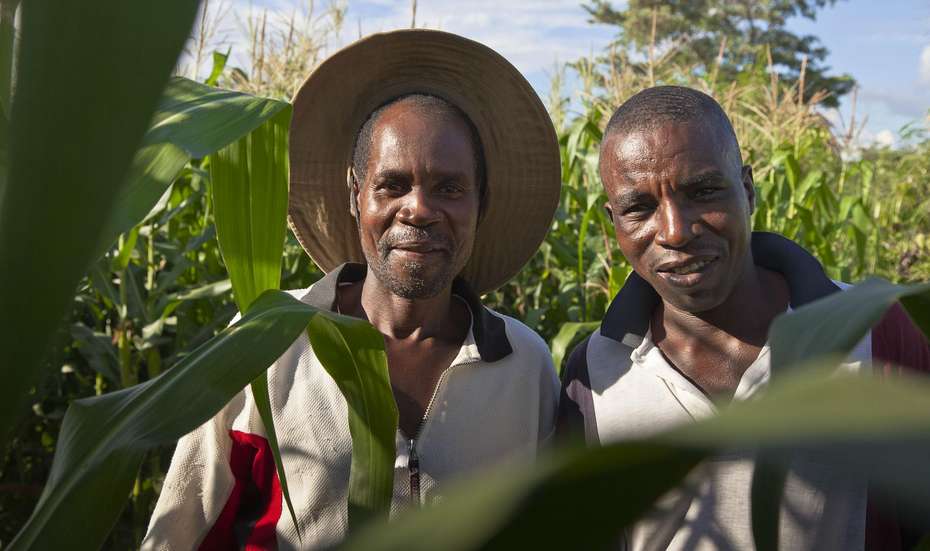
Poor Harvests and Little Healthy Food Despite Fertile Soil
A road trip through western Zimbabwe will show off a landscape with impressively green and lush vegetation. The same cannot, however, be said of its fields. Farming families generally cultivate only a single crop such as maize or millet. This dependence becomes problematic if the crop fails because of droughts or a lack of rain due to the effects of climate change. Many smallholders do not have the knowledge and experience to apply cultivation methods that are more effective and appropriate for local climate. They hardly have access to infrastructure, new equipment or technology and also lack the credit to invest in, for example, high-quality seeds.
The smallholder agricultural economy has been neglected by the government for years. Agricultural production diminished drastically under the authoritarian government of Robert Mugabe. In the course of the land reforms at the end of the nineties, many large farms were expropriated. Thousands of farmers lost their jobs or were displaced. Unemployment and food and nutrition insecurity have been a defining feature of daily life ever since.
On the Way to Sustainable Agriculture Together
In the district of Gokwe, southwest of the capital city of Harare, the majority of the population is living on the produce from its fields or income from the cotton plantations. They have hardly any food and nutrition security. More than 40% of the region’s infants are chronically malnourished. Together with the local partner Agricultural Partnerships Trust, Welthungerhilfe is helping smallholders in Gokwe to start anew.
How Welthungerhilfe Supports People in Zimbabwe
-
Welthungerhilfe is educating people on modern cultivation methods that protect the soil and still generate greater yields. With the aid of natural fertilisers and ecological plant protection, the environment is being protected in the long term.
-
Smallholders become familiar with drought-resistant crops in training sessions. In addition to maize and millet, they are now cultivating climate-appropriate vegetables such as sweet potatoes, peanuts and tomatoes in their fields. This allows them to harvest almost year-round and makes their diet healthier and more diverse.
-
Smallholder families receive training and chicks to start raising chickens. The animals enrich their diet, generate income and offer security.
-
In order to improve villagers’ health in the long term, they learn about a healthy diet in community health clubs.
-
"We often used to compete with rats and mice for our food stores,” recalls farmer Lucy Marimirofa. Specialised grain silos now keep out the rodents. The communal harvest is stored and managed there. This ensures that all families have enough seeds for the next crop and are well-prepared for emergencies.
- The fact that the farmers are organising in groups also has benefits for marketing: They obtain better prices on the market and have easier access to loans, which they finance with collective deposits.
Gokwe, open to new ideas, is progressing toward the future. Better harvests leave the farmers with surplus product to sell on the market and earn additional income. We are planning additional educational measures and will support the people in acquiring new equipment and material as well as in founding small enterprises for processing their produce and selling it to a broader market.




